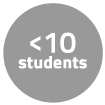Course Overview
This page focuses on the course 21W.758 Genre Fiction Workshop as it was taught by Shariann Lewitt in Spring 2013.
Genre Fiction is a workshop-based course for students with some writing experience who want to focus on mastering the forms and challenges of established genres. Published works of mystery, fantasy, and science fiction are read and discussed, with particular attention paid to structure, world building, the Reader Writer Contract, maintaining suspense, and the realities of contemporary publishing, among other topics. These conversations are intended to inform the writing done by students during the course and our discussions about those pieces.
Course Outcomes
Course Goals for Students
The overall goal for the course is for students to learn to write good fiction. The emphasis is on character and how plot grows from character. Good fiction is the basis for writing good genre fiction.
The genre-based goals for the students are to:
- Understand the Reader Writer Contract and how it applies to creating fiction of various genres.
- Understand, recognize, and work with the tropes of the chosen genre.
- Be conversant in the conventions of genre fiction in general and the requirements of multiple genres, to give students the ability to shift and/or combine them.
- Recognize cliché within the genre and know the difference between writing fresh, original work that still fulfills the Contract of a given genre and hack writing.
- Be able to write in at least two subgenres of a chosen genre.
› Expand/Collapse
Possibilities for Further Study/Careers
After this course, most students want to find a workshop group where they can continue to write and receive useful critiques. Compatible workshops, especially in genre, are not often easy to find. Those who are not graduating often are writing minors or concentrators and will take more courses in the creative writing track. Depending on a student’s interests, that could include 21W.759 Writing Science Fiction, 21W.770 Advanced Fiction Workshop, or 21W.773 Writing Longer Fiction.
Instructor Insights
On the following pages, Shariann Lewitt describes various aspects of how she teaches 21W.758 Genre Fiction.
- Genre and Fiction
- Teaching Students to Challenge Texts: “What is Fantasy?”
- Selecting and Approaching Books
- Teaching MIT Students
- Course Components
Curriculum Information
Prerequisites
A course in writing short fiction or comparable writing experience.
Requirements Satisfied
- CI-M

- HASS-A

- This course can be applied toward a Bachelor of Science in Writing, but is not required.
Offered
Every other fall semester
Student Information

Breakdown by Year
Primarily juniors and seniors with some underclassmen and one or two graduate students.
Breakdown by Major
Wide variation, though most students were writing minors or concentrators.
Typical Student Background
The common interest of all the students in this course was a real love of whatever genre they read. They were all there to learn to write in one particular genre (almost all of them either science fiction or fantasy). Almost all had a previous writing class, primarily 21W.755 Writing and Reading the Short Story (the introductory fiction class at MIT), and several of them had one of the other introductory creative writing classes that emphasize creative non-fiction, poetry or autobiography. Many of them had been writing stories on their own for pleasure for a long time. Students brought a lot of enthusiasm to this class — they were deeply invested in the material and committed to improving their own work.
Enrollment Cap
15. Every member of a workshop needs to be responsible to every other member. With more than 15 students, it would not be possible for every student to read every other student’s work.
Ideal Class Size
6-12 works well; 8-10 is perfect.
How Student Time Was Spent
During an average week, students were expected to spend 12 hours on the course, roughly divided as follows:
Seminar
- Met twice per week for 1.5 hours per session; 24 total sessions; mandatory attendance
- Workshop: Workshop was the center of this class and greatly beneficial to the students’ stories. About half of the class sessions were spent on workshops, because that’s how much time it took to workshop every piece written for the class.
- Lecture and Discussion: Lecture and discussion topics were mainly in response to what the students were interested in.
- Exercises: Students were expected to come to each class meeting with one non-visual observation—a smell, a sound, a taste, a tactile sensation—and describe it to the group. Creating a world for the reader requires the careful selection and description of detail, and this exercise makes students more aware observers. Other exercises varied by topic over the semester.
Out of Class
- Reading published works and all works by fellow students submitted for workshop.
- Writing, including three pieces to be submitted for workshop, which were revised based on class discussion and written feedback, with final drafts turned in at the end of term.








